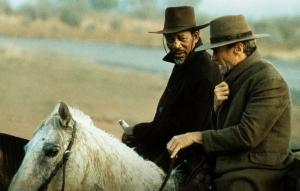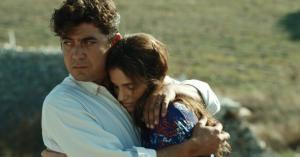10 key songs by Bob Marley
Bob Marley was a musician, songwriter and singer of the reggae genre who stood out for both his artistic work and for his unwavering commitment to the cause of peace and the vindication of the Afro-descendant community throughout the world.
The reggae genre that Bob Marley worthily represented had emerged from the influences of ska on the one hand and rocksteady on the other. In its origin, reggae was, as today, linked to the struggle of social causes and Rastafarian spirituality, a key factor in its definition and perspective.
Bob Marley played a major role in the international recognition of reggae, in such a way that the impact of his legacy would be a weighty factor in the decision to name the genre as World Heritage by UNESCO.
Marley's most emblematic songs will be a living example of his contributions as a musician and, at the same time, a sample of the value of reggae in international musical culture. Let's get to know some of them.
1. I Shot the Sheriff
I Shot the Sheriff is included in the album Burnin'Of 1973. A year later, Eric Clapton would do a version that reached the first place of the billboard. Bildboard Hot 100.
The song talks about a person who has been accused of a crime that he did not commit, the murder of a deputy, after having injured a mayor in self-defense. The subject is, therefore, trapped in the networks of power, and struggles to defend himself.
2. No woman no cry
This song was recorded for the first time in 1974, and is included in the album Natty dread. Although the song was legally attributed to Vincent Ford, this attribution was an arrangement made with Bob Marley, since at that time the singer was facing problems with the music industry.
The agreement also responded to the enormous friendship between them, as Vincent Ford had given her shelter in his dining room when Bob was left homeless. That dining room was one of the spaces where Bob and Bunny met to play, and where they received spiritual teachings from Rasta George Headly Robinson.
In the text, Marley assumes the voice of a subject who must say goodbye to a woman, and comforts her by evoking the fond memories they have lived together.
3. War
War first appeared on the 1976 Rastaman Vibration album. The lyrics are based almost entirely on the speech that the Ethiopian Emperor Hailè Selassiè gave to the United Nations on October 4, 1963.
The song was attributed to Allen "Skill" Cole and Carlton Barrett, although it is believed that such attribution was part of one of the arrangements Marley made with his friends to evade the leonine contracts with the publishers.
4. Exodus
The topic Exodus It is included in a self-titled album from 1977. Both the song and the album were recorded in London after the attack that Bob Marley suffered in Jamaica in 1976. The theme is inspired by the biblical passage of Exodus, and represents the image of the people who set out towards their liberation.
5. Three little birds
Three little birds was first published on the album Exodus from 1977. It is a song of joy and hope, which invites you to let go of superfluous worries, to appreciate the simple details of life and to trust tomorrow.
6. Is this love?
The song Is this love was released on the disc Kaya, 1978. It is a love song that vindicates the love commitment from the simplicity of poverty and the effort to get sustenance for the day to day. In the video clip of this song, the model Naomi Campbell appears for the first time, who by then was just a 7-year-old girl.
7. Waiting in Vain
Also included in your album Exodus, Waiting in Vain it is a theme dedicated to hopeless love, which fears the moment when the other confesses that waiting for him has been in vain. The lover cries out for an answer that will free him from the agonizing wait.
8. Could you be Loved?
This song, included in the album Uprising from 1980, has been interpreted as one of Marley's songs dedicated to peace and freedom. It takes as a reference a biblical verse about truth (Luke 8, 17), from which it addresses the issue of the search for one's own voice and the difficulties involved in defending ideals.
9. Redemption Song
The song was composed in 1979, just after the diagnosis that would reveal Bob Marley's cancer. It was released on disk Uprising in 1980.
The recording of the song challenges the type of arrangements of Bob Marley. This time the singer opts for an intimate format: only voice and guitar are the elements of this song. The importance will be of the text.
While recalling the story of slavery on the African people, Marley constructs a text hopeful in which he advocates for mental liberation and exhorts everyone to join the cause of peace and Liberty.
This theme has been the subject of numerous versions, among which the version of the international project Playing for Change has recently stood out.
10. One Love
This album theme Exodus It was not released as a single until 1984, when as a posthumous tribute, it was included in the compilation Legend, the best-selling album at the time. The theme is a song to love, an exhortation to the union of humanity in a single cause.
About Bob Marley
Robert Nesta Marley, known as Bob Marley, was born in Jamaica on February 6, 1945. The son of an African-American mother and a white father, he was teased for being a mulatto. In time, Marley came to identify with his maternal origin.
His mother married Bunny Wailer's father after his father's death. Along with Bunny, Marley took his first steps in music. The two young men formed a band called Wailing Wailers, which means "shouts of protest."
Marley alternated his musical vocation with other types of jobs to earn a living. He married singer Rita Anderson in 1966. They both settled in Kington, the capital of Jamaica, at a time when the visit of the Ethiopian Emperor Hailè Selassiè would give new impetus to Rastafarian spirituality.
Little by little, Marley began to show his interest in this spirituality in his music and, together with Bunny, would form the band the Wailers, who would be joined by the brothers Carlton and Aston 'Family Man' Barrett.
Bob Marley's socially engaged lyrics were paving the way for the band. But in 1973 Bunny left music and was replaced by Joe Higgs, a former youth teacher. With time and after the changes in the formation of the band, they began to be known as Bob Marley and the Wailers.
In 1976 Marley, turned into a pacifist, decided to participate in a concert for peace in Jamaica, which was going through a serious conflict of violence between factions of the National People's Party and the Labor Party of Jamaica.
Accused of collaborators, Bob and his wife were wounded with firearms two days before the big event. Still, Bob decided to go ahead and get on stage. His words were famous at that time: “People who are trying to make this world worse don't take a day off, how could I? Illuminates the darkness”.
After getting Jamaican Prime Minister Michael Manley and opposition leader Edward Seaga to shake hands during the One Love Peace Concert In 1978, the United Nations Organization awarded him the Medal of Peace.
The last years of the decade of 1970 would represent for Bob Marley the definitive international consecration of him. However, diagnosed with cancer, Marley died on May 11, 1981. We would have to wait until 1994 for him to be included in the Rock and Roll Hall of Fame.
Bob Marley Discography
The Wailers Band:
- The Wailing Wailers, 1965
- Soul rebels, 1970
- Soul revolution, 1971
- The Best Of The Wailers, 1971
- African Herbsman, 1973
- Catch a Fire, 1973
- Burnin ', 1973
Band Bob Marley & The Wailers
- Rasta Revolution, 1974
- Natty dread, 1974
- Live!, 1975
- Rastaman Vibration, 1976
- Exodus, 1977
- Kaya, 1978
- Babylon by Bus, 1978
- Survival, 1979
- Uprising, 1980
- Confrontation, 1983
- Legend, 1984


